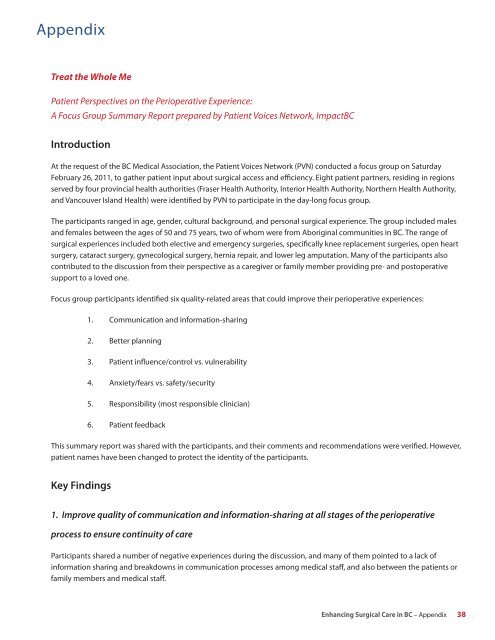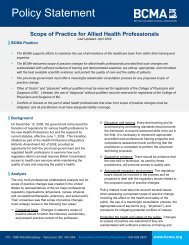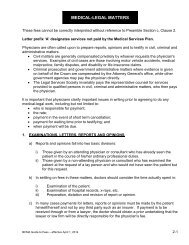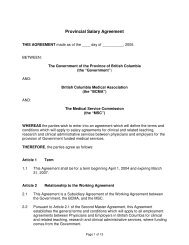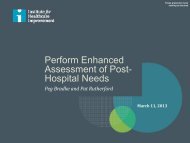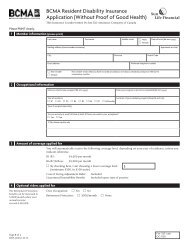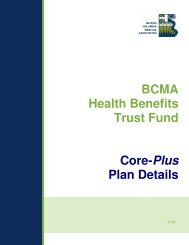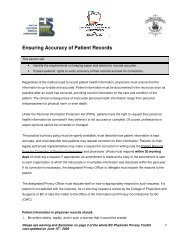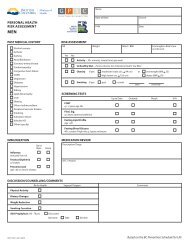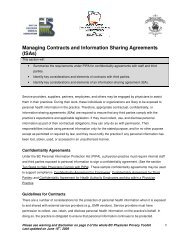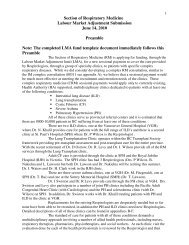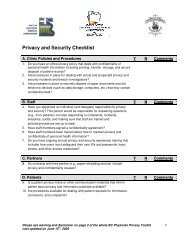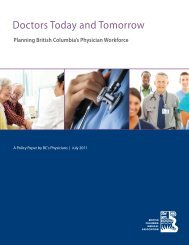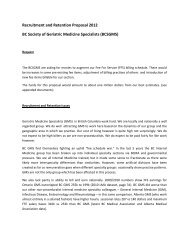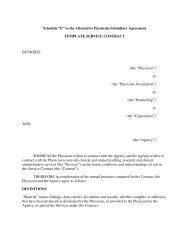Enhancing Surgical Care in BC - British Columbia Medical Association
Enhancing Surgical Care in BC - British Columbia Medical Association
Enhancing Surgical Care in BC - British Columbia Medical Association
You also want an ePaper? Increase the reach of your titles
YUMPU automatically turns print PDFs into web optimized ePapers that Google loves.
Appendix<br />
Treat the Whole Me<br />
Patient Perspectives on the Perioperative Experience:<br />
A Focus Group Summary Report prepared by Patient Voices Network, Impact<strong>BC</strong><br />
Introduction<br />
At the request of the <strong>BC</strong> <strong>Medical</strong> <strong>Association</strong>, the Patient Voices Network (PVN) conducted a focus group on Saturday<br />
February 26, 2011, to gather patient <strong>in</strong>put about surgical access and efficiency. Eight patient partners, resid<strong>in</strong>g <strong>in</strong> regions<br />
served by four prov<strong>in</strong>cial health authorities (Fraser Health Authority, Interior Health Authority, Northern Health Authority,<br />
and Vancouver Island Health) were identified by PVN to participate <strong>in</strong> the day-long focus group.<br />
The participants ranged <strong>in</strong> age, gender, cultural background, and personal surgical experience. The group <strong>in</strong>cluded males<br />
and females between the ages of 50 and 75 years, two of whom were from Aborig<strong>in</strong>al communities <strong>in</strong> <strong>BC</strong>. The range of<br />
surgical experiences <strong>in</strong>cluded both elective and emergency surgeries, specifically knee replacement surgeries, open heart<br />
surgery, cataract surgery, gynecological surgery, hernia repair, and lower leg amputation. Many of the participants also<br />
contributed to the discussion from their perspective as a caregiver or family member provid<strong>in</strong>g pre- and postoperative<br />
support to a loved one.<br />
Focus group participants identified six quality-related areas that could improve their perioperative experiences:<br />
1. Communication and <strong>in</strong>formation-shar<strong>in</strong>g<br />
2. Better plann<strong>in</strong>g<br />
3. Patient <strong>in</strong>fluence/control vs. vulnerability<br />
4. Anxiety/fears vs. safety/security<br />
5. Responsibility (most responsible cl<strong>in</strong>ician)<br />
6. Patient feedback<br />
This summary report was shared with the participants, and their comments and recommendations were verified. However,<br />
patient names have been changed to protect the identity of the participants.<br />
Key F<strong>in</strong>d<strong>in</strong>gs<br />
1. Improve quality of communication and <strong>in</strong>formation-shar<strong>in</strong>g at all stages of the perioperative<br />
process to ensure cont<strong>in</strong>uity of care<br />
Participants shared a number of negative experiences dur<strong>in</strong>g the discussion, and many of them po<strong>in</strong>ted to a lack of<br />
<strong>in</strong>formation shar<strong>in</strong>g and breakdowns <strong>in</strong> communication processes among medical staff, and also between the patients or<br />
family members and medical staff.<br />
<strong>Enhanc<strong>in</strong>g</strong> <strong>Surgical</strong> <strong>Care</strong> <strong>in</strong> <strong>BC</strong> – Appendix 38


